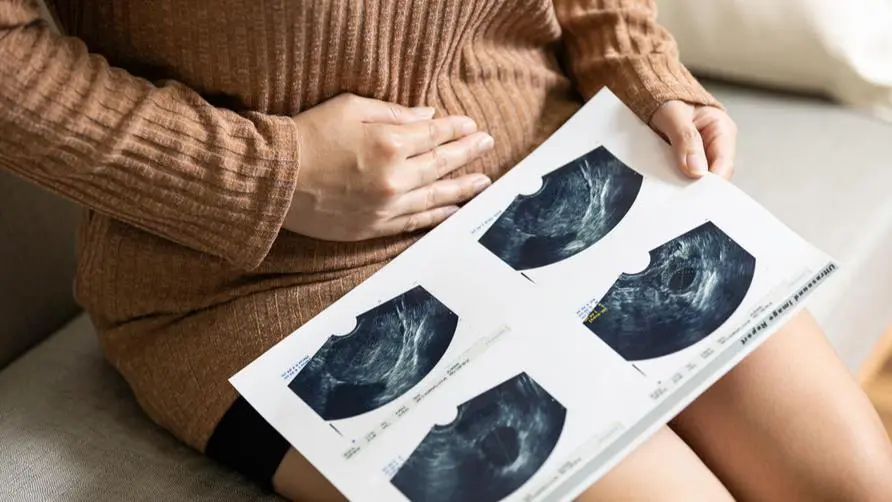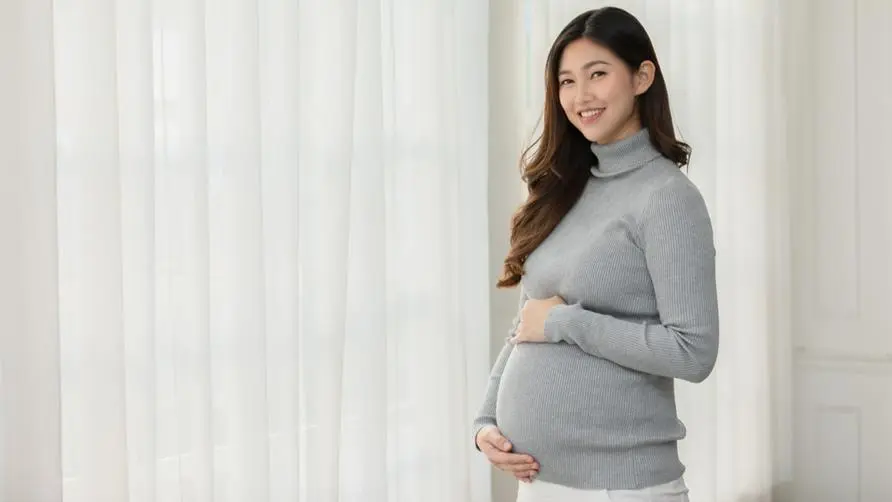A 28-year-old young woman's ovarian stock remains at "0.1"! Doctor reveals the 3 major symptoms of "premature ovarian failure"

Number of people undergoing infertility treatment quadrupled? Late marriage and late childbearing are the main causes of infertility
Taiwanese people are marrying and having children later in life, and the proportion of men and women suffering from infertility is also increasing year by year. Dr. Lai Zongxuan, director of the Reproductive Medicine Center of Cathay General Hospital, said in an interview that the infertility rate in Taiwan is about 15%, and 1 in every 6-7 couples faces infertility problems. The number of IVF treatments has increased from 8,000-10,000 in the past 10 years to more than 44,000 last year.
Dr. Lai Zongxuan said that due to the advancement of medical technology and infertility treatment, Taiwan has the highest pregnancy rate in Asia, second only to the United States in the world, and the cost of artificial reproduction is the second cheapest in Asia. The technology is high and the cost is relatively reasonable. As a result, infertility patients from Southeast Asia, China, Japan, South Korea, Australia, the United States and other places have come here.
Changing social patterns are also responsible for the rise in infertility. Dr. Lai Zongxuan pointed out that modern people continue to postpone their marriage age in order to study for a degree or develop their careers. The average age of marriage for women is about 30 years old, and the average age for men is already around 35 years old. Since the fertility rate is inversely proportional to age, the older you are, the less likely you are to get pregnant and have children. An increase in the number of people getting married later is likely to lead to a decrease in the fertility rate.
In order to encourage Taiwanese to have children as early as possible, the government has promoted partial subsidies for in vitro fertilization since July last year, so that couples who want to have children but are worried about financial pressure can receive treatment. It is expected that after the epidemic eases in the second half of the year, the number of IVF babies will continue to hit a high.
Infertility is not a female-only problem! These diseases are related to both men and women
Dr. Lai Zongxuan said that as age increases, both men and women will face more disease problems, leading to an increased chance of infertility. For women, after the age of 30-35, gynecological diseases such as endometriosis, polycystic ovary syndrome, chocolate cysts, uterine fibroids, ovarian tumors, adenomyosis or endometrial polyps, pelvic cavity Inflammation and fallopian tube obstruction may cause infertility problems.
Men may also develop sexual dysfunction, varicocele, vas deferens obstruction due to sexually transmitted infections, and azoospermia as they age. Azoospermia can be divided into congenital and acquired factors, and can be roughly divided into obstructive and non-obstructive factors. Obstructive azoospermia is commonly caused by acquired infection of the vas deferens leading to obstruction and inflammation, as well as obstructive azoospermia caused by congenital absence of vas deferens.
As for “non-obstructive azoospermia”, it means that the structure of the fallopian tube and urethra is normal, but there is a problem with sperm “production”, such as acquired testicularitis or severe COVID-19 infection, which may cause the testicles to be unable to produce sperm. Congenital azoospermia includes diseases such as “Klinefelter’s disease” with 47,XXY chromosome abnormalities, which can lead to premature testicular aging in men and the inability to produce sperm.
Stress can easily increase endocrine abnormalities! Excessive plasticizer may increase the risk of infertility
In addition, work pressure can easily increase the risk of hormonal abnormalities and infertility. Dr. Lai Zongxuan pointed out that Taiwanese women often have to juggle between the workplace and the family. Excessive pressure in life can easily lead to endocrine disorders, increase prolactin, or cause hyper or hypothyroidism, which may also lead to irregular ovulation and infertility.
Men are prone to living habits of working too long hours and reversing day and night, leading to sexual dysfunction, erectile dysfunction, difficulty in ejaculation and other problems. Although some men have normal sexual function, they discover poor sperm quality after examination. This is mostly related to high work pressure, lack of exercise, or irregular meals and eating junk food.
In addition, Dr. Lai Zongxuan reminded that after heating plastic containers, environmental reproductive toxicants such as bisphenol A and plasticizers are likely to be produced, which will poison reproductive cells and affect the male’s sperm production function or the female’s egg quality. If your partner has infertility problems, it is recommended that the couple go to an infertility clinic together to consult a specialist for assistance.
AI artificial intelligence combines time-lapse photography to improve embryo quality and pregnancy rate
Dr. Lai Zongxuan pointed out that factors with poor egg quality, such as aging ovaries over the age of 35, exposure to environmental toxins, ovarian diseases such as chocolate cysts, polycystic ovaries, etc., will affect embryo quality and increase the difficulty of conception. Fortunately, embryo culture technology has advanced in recent years. , there is a time-lapse photography incubator combined with AI artificial intelligence, which allows each egg to live in an “independent suite” for 24-hour monitoring to maintain the best embryonic development environment.
Dr. Lai Zongxuan explained that the time-lapse photography incubator combined with AI artificial intelligence uses the technology of taking pictures every 5-10 minutes to monitor the status of the embryos at any time, and can promptly detect whether there are any problems with embryo division or development. It does not need to be taken out for observation every day like traditional culture chambers, and it can keep oxygen, culture medium, carbon dioxide and humidity constant.
Dr. Lai Zongxuan further explained that another advantage of the new AI embryo culture technology is that it can use computer big data to automatically sort embryos when preparing for implantation, allowing clinicians to select the most suitable embryos according to the patient’s condition before implanting them. The pregnancy success rate can be increased by approximately 15%-20%. The overall pregnancy rate averages over 50%. Under 35 years old, it can even be as high as 60% or 70%. It is suitable for women with low egg count, premature ovarian failure and low AMH.
She is 28 years old and approaching menopause due to premature ovarian failure! Pay attention to 3 major symptoms quickly
Because ovulation has its age limit, women should pay attention to infertility issues as early as possible. Dr. Lai Zongxuan said that he recently treated a 28-year-old woman whose ovarian function had obvious premature failure, and her AMH hormone index (ovarian energy storage index) was only 0.2. (Normally for women, it is about 2 or more). The case itself has no ovarian disease or gynecological disease. It is estimated that it is due to exposure to a large number of chemical materials in the working environment, as well as long-term abnormal life and diet, and loves to eat stale food such as over-fried food and long-term eating of braised food. related.
Dr. Lai Zongxuan explained that this woman was undergoing relevant evaluation for egg freezing and was accidentally found to have severe premature ovarian failure. Although 5 eggs were successfully retrieved, it is recommended that a total of 10 eggs be retrieved for those under 30 years old to have a better chance of having a live birth. Women are reminded that if they notice a decrease in menstrual flow, or the menstrual period is shortened to less than 5 days, or the menstrual cycle is shortened from 28 days to less than 26 days, these may be clinical symptoms of premature ovarian failure, and it is recommended to receive fertility assessment as soon as possible.
Dr. Lai Zongxuan reminded that although IVF technology has made great progress, the success rate will still decrease with age. The best “CP value” age for artificial reproduction is recommended to be before 35 years old. Couples experiencing infertility or difficulty conceiving are reminded to seek medical evaluation as soon as possible to grasp the best chance of pregnancy and successfully achieve the goal of having a baby.
Further reading:





